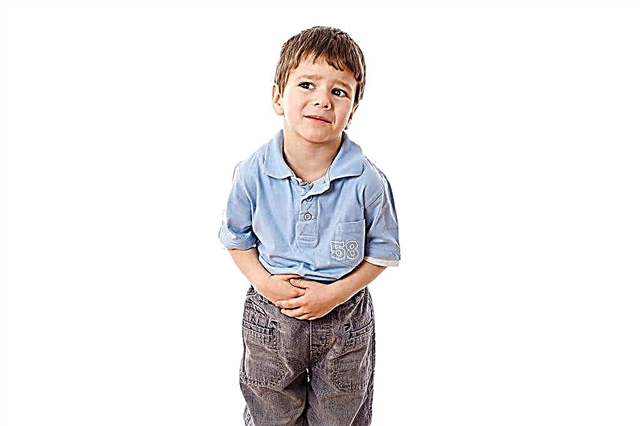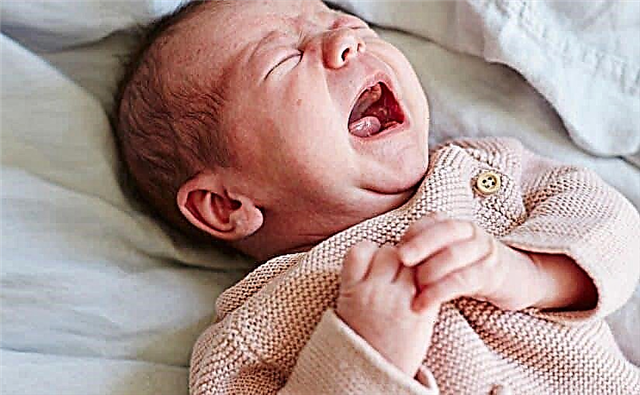The main reasons for sleep disturbances in young children, why it is harmful for children to sleep in a car, why you should not teach your baby to fall asleep in complete silence, the negative aspects of motion sickness in the arms, how to teach a child to sleep in his crib.
Very often, parents who are worried that their baby is sleeping poorly do not notice that they are partly the cause of the problem, although they are acting out of the best intentions. Indulging their child, teaching him to sleep in perfect silence, in transport or in his arms, to feed before bed, they form the wrong habits that not only make life difficult for themselves, but can subsequently cause serious sleep problems in children. We keep repeating the same mistakes. How to avoid them? Let's listen to the following advice from experienced professionals.

No need to run up to the child "for every squeak"
Of course, you need to listen to the baby's calls and check if everything is in order. But you should not run headlong to the crib, barely hearing the groaning of a sleepy child. Children often make different sounds in their sleep, but usually calm down very quickly. After a minute, it makes sense to quietly approach and, for example, straighten the blanket if necessary. Do not teach your baby that parents are ready to come to him on demand, because as he grows up, this can bring new problems to you and him. Sometimes, even at school age, children continue to come to the parents' bedroom out of habit. There is no need to indulge the whims of a grown-up child - he must understand that the regime should be observed.
Give your child a chance to calm down and fall asleep on their own. You might be surprised, but half the time this is exactly what will happen.
Feeding should not be associated with sleep
Many mothers prefer to feed their baby one last time before putting it in the crib at night. This is the same mistake many moms make - breastfeeding. directly before going to bed.This is wrong, because later the habit of falling asleep exclusively on the hands of the mother and with the breast in the mouth will form. And now, every time the baby wakes up at night, you have to feed him before he can fall asleep, because he simply cannot fall asleep otherwise. It is important to understand that falling asleep is a skill that can be trained. Ideally, feed your baby at least 20 minutes before falling asleep.
Any bad sleeping habits should only be corrected after the baby is four months old.
Feed your baby in a different room where he will sleep so that food is no longer associated with sleep. After the baby has eaten, take him to the crib, and then sit next to him so that he feels that he is protected, loved. But you do not need to hold the baby in your arms at this moment.
Do not seek to create perfect silence while your child is sleeping
The mistake is made by those parents who believe that the newborn should sleep in absolute silence. Firstly, such conditions are almost impossible to create in the daytime, if you do not live in a private house away from people (after all, in city apartments no one is immune from the fact that a neighbor suddenly wants to ring the doorbell or drill a wall), and you will have to minimize your activity during certain hours. Secondly, the child himself will subsequently face difficulties, because no one will indulge them all his life.

If from birth a child gets used to falling asleep only in deathly silence, then you will have to observe this silence for the next 3-4 years. Walk on tiptoe, in no case slam doors, put the phone in silent mode forever and replace ordinary windows with soundproof ones.
In infants, the nervous system is just being formed, they may well sleep peacefully in the presence of household noise (the creak of floorboards, a truck passing on the street, the sound of a boiling kettle, a quiet conversation of relatives in the next room, etc.). This is normal.
If the baby learns to sleep in moderate noise, then neither the barking of the dog nor the bell at the door will wake him up.
You shouldn't train your child to sleep in the car.
Many parents who often travel with their children in a car or public transport, noticing that they fall asleep well on the road, prefer that the baby rest on the way - they say that his activity and opportunities to learn about the world around him are still limited because of the car seat. If you are not far away, you do not need to practice such a dream on an ongoing basis - the child will quickly get used to it, and this is not good: the baby will easily fall asleep in motion, under the "rocking" of the car, and then it will be difficult for him to learn how to do it on his own. Try to distract him with some games or hit the road when he recently got up. However, it's okay if your child occasionally sleeps in the car, when he is really tired, or if you have a really long, tiring journey. But do not forget that at least 2/3 (or at least half) of all the time allotted for his sleep, the child should spend in his bed.
If a child regularly falls asleep in a car or other form of transport, his brain will begin to associate the sensation of movement with falling asleep. During a short trip, distract your child in every possible way, preventing him from falling asleep. If falling asleep in transport cannot be avoided, then do not be discouraged - just make sure that 50-75% of the child's sleep falls on the crib indoors.
The arms of loving parents are pleasant, but not the most suitable place to sleep.
Young children often fall asleep when rocked in their arms. It's bad when other options are not even considered. The kid must understand that the most suitable place to sleep is the bed. A spoiled child may not get off the mother's arms for hours, leaving her no opportunity to do household chores, and sometimes even eat. When they put him down, he screams loudly, not wanting to part with her. Mental and body contact is very important, but the child needs to be made aware that the mother also needs to rest. She will stay there, but the baby needs to form the habit of falling asleep in the crib. If the child refuses to do this, stretches into his arms (and he was already three months old at that time), it is easy to fix this as follows: take him, calm him down and put him back in bed before he falls asleep. This can be repeated several times until a positive habit is formed.
Sharing sleep, which many experts and mothers themselves consider to be beneficial for the health of the child, does not mean that you should replace the baby's crib with yourself, says Judith Owens, head of the Center for Pediatrics and Sleep Disorders at Children's Hospital in Boston, USA. - If you nevertheless made this mistake, then when the baby is three or four months old, try the following: put the sleepy, but still awake baby in the cradle. If he cries, take him in your arms, calm him down, but do not let him fall asleep, and then repeat the procedure. Your task is to make the baby associate the bed with sleep.
Do not take to heart the comments of people who raised their children differently and disagree with your methods. If you see that this or that method really suits both you and the baby, ignore the objections of the counselors. They may be able to implement their ideas by raising their own children, but it will be better when you start taking care of the comfort of your family members on your own. The child will respect you from an early age and know that you only wish him well.
- Why does a child under one year old sleep poorly at night: how to improve the child's sleep?
- Why does a newborn baby flinch in sleep?
- When the baby starts to sleep all night
- How to put a child to sleep without tears and whims
- Can a newborn sleep on its stomach?
- The child is a month old and does not sleep well during the day (reasons)
- An ingenious trick - how to put a child to sleep in 1 minute
- 6 things to help your baby fall asleep
Nathan Dailo's Method
Look, it's just brilliant!



